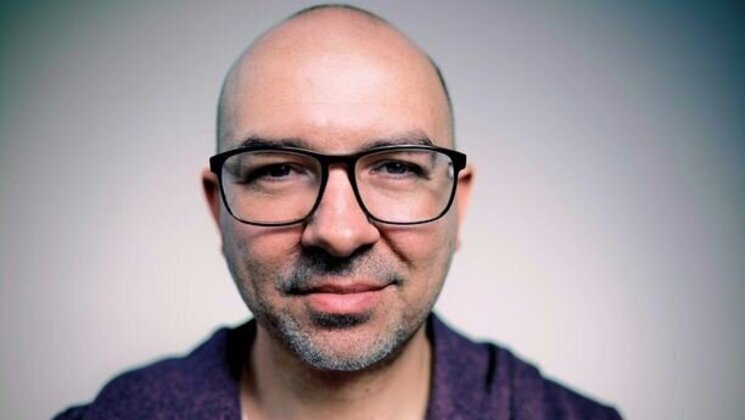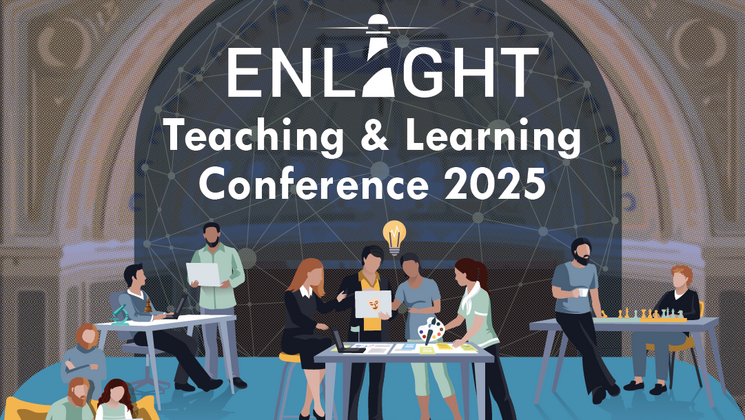Estonia to celebrate 20 years since joining the European Union

Next year, we will celebrate 20 years since Estonia, Latvia and Lithuania joined the European Union. Having now experienced a global pandemic, two financial crises and the effects of unfiltered globalisation, unprecedented movements of peoples across continents, and the start of the war ravaging Ukraine, we can say that today's world is more unpredictable and chaotic than 20 years ago.
Since 2004, when we joined both the European Union and NATO, Estonia has built a reputation in Brussels of being a reliable, trusted, and deeply committed member. This has given Estonia the chance to exert an influence over EU and world policy that is much bigger than its physical size.
Four challenges that define today's world much more prominently than in the early 2000s are the preservation of our environment, harnessing technology for positive impact, navigating geopolitical complexities, and preserving our democracies. However, new challenges also bring new opportunities to be protagonists in shaping our future.
First challenge: environment
The EU climate diplomacy can be defined by two pivotal trajectories.
Firstly, since the Paris Agreement of 2015, the EU has asserted itself as a trailblazer in diffusing and promoting its environmental standards far beyond Europe's borders. A noteworthy instance is California adopting the European Green Deal, surpassing the ambition of US legislation.
Secondly, the EU aims to maintain its economic competitiveness in the global markets while embracing the green transition. This involves increasing self-sufficiency and economic resilience and ensuring a secure supply of hi-tech resources and raw materials crucial for sustaining the transition from reliable partners.
The aim to reach climate neutrality by 2050 and reduce greenhouse gas emissions by at least 55 per cent by 2030 is at the core of the European Green Deal. The Deal also sets a carbon pricing mechanism and incentives for the industries that adopt sustainable practices.
A Just Transition Fund aims to reduce the negative socio-economic impact of these policies on the most vulnerable sectors of European societies, especially supporting regions dependent on fossil fuels such as Estonia's Ida-Virumaa.
Second challenge: spread of digital technology
The EU is also emerging as a standard-setter in using (digital) technology. While the EU lags behind the USA and China as an innovation powerhouse due to economic factors and bureaucratic hurdles, it has excelled in crafting effective supranational legislation to shape the impact of new technologies, safeguarding and enhancing citizens' rights in the digital realm. The widespread adoption of GDPR standards and the EU's pioneering legislation on AI signal that this trajectory is likely to persist into the future.
Furthermore, the EU has successfully extended the benefits of digital technologies and e-governance beyond individual member states. Estonia, in particular, has played a pivotal role as Europe's digital powerhouse, influencing the continent's digital future. Noteworthy initiatives driven by Estonia that will profoundly shape the future of European citizens include the finalisation of the Digital Single Market and the launch of the European Digital Identity.
Third challenge: geopolitics
Traditionally, the EU has proven to be an effective decision-maker in well-regulated and predictable contexts, where all players abide by the rules and where decisions are not rushed. International affairs are increasingly the opposite of this: unpredictable and fast-evolving.
Over the last decade, confrontation and competition have progressively substituted consensus and cooperation in conducting global affairs. Non-Western counter-hegemonic challengers are emerging from Beijing to Moscow.
Unlike in 2004, when Moscow did not actively oppose the Baltic state's EU bids, starting from Euromaidan, Russia has progressively antagonised the EU and its engagement with its Eastern neighbours. In the eyes of Russia's ruling elites, there is very little difference between NATO and the EU, both are seen as a direct threat to the Kremlin's grip on its former empire.
It is noteworthy that, as the continent witnesses its most destructive war of conquest since 1945, the EU has been able to undertake a geopolitical revolution. Its external action has changed more in the last 15 months than in the last 15 years.
Fourth challenge: safeguarding democracy
Next year, the European Parliament elections will take place. Therefore, it is worth recalling the words of the Schuman declaration that marks the beginning of the process of European integration: "World peace cannot be safeguarded without the making of creative efforts proportionate to the dangers which threaten it."1
The wave of recent crises has taught us that when European liberal democracies show a lack of leadership and deliver ineffective responses, authoritarian regimes successfully engage in a global PR campaign. The illiberal model has gained traction all across Europe in times of uncertainty.
European integration and its freedoms and achievements might end up being one of the most notable victims of this state of things. After spending years saying that the EU should be dismantled, nationalists across the continent increasingly blame it for not doing enough – often joined by mainstream politicians and the media.
Nowadays – more than ever – creative efforts shaped by citizens' democratic voices are needed, proportionate to the challenges we face.
Are the Baltic voices being heard?
While usually considered among the most reliable EU members, Estonia and the Baltic states have historically faced challenges in shaping the EU's foreign policy and a global perspective due to their peripheral location and complex relationship with Moscow, shaped by painful historical path dependency.
However, since the onset of Russia's full-scale invasion of Ukraine, Estonia has demonstrated that a good combination of geopolitical understanding, clear objectives, and high credibility can overcome marginality. This approach not only amplifies the smaller voices of the Baltic states but also grants them unprecedented centrality and influence in policy-shaping and decision-making.2
The credibility of Estonia and its Baltic counterparts within the broader Western community is further strengthened by the combination of unwavering support for Ukraine and a steadfast commitment to the values of liberal democracy. This provides Estonia – unlike other partners in the region – with a robust moral foundation to counter Russia's imperialist expansionism, addressing not only security concerns but also confronting the clash between liberal democracy and illiberal authoritarianism.
Amidst the backdrop of growing illiberalism in Europe, Estonia is poised to amplify its influence as a leading liberal voice in the region. Furthermore, Estonia's credibility as a pioneer of e-governance infrastructure and services positions it at the forefront of tackling one of the key challenges of our times – revitalising European democracy.
The positive spill-over of Estonia's innovative digital solutions has the potential not only to modernise European democracy for the 21st century but also to enhance its resilience against emerging and longstanding threats. In this digital age, Estonia's contributions are also instrumental in fostering increased citizen participation and strengthening the foundations of European democracy.
As a lucky coincidence and a tangible evidence of Estonia's success, the anniversary of joining the European Union will coincide with Tartu being the European Capital of Culture.
20 years of the "European Studies" master's curriculum at the University of Tartu
The University of Tartu has traditionally been a vector of Estonia's global voice and strive for innovation, and the context of European integration is no exception to that. In 2003, in anticipation of Estonia's EU accession, the UT European College initiated the master's curriculum in "European Studies" with a dual purpose: to train the first generation of Estonian EU officials and elevate the awareness of Estonian society.
Today, as the curriculum marks its 20th anniversary, its mission remains unchanged, while it adapts to the challenges of today's world. After a curriculum reform conducted over the past year, the curriculum now features innovative courses such as "Green Transition in Europe" and "EU in Estonia and Estonia in the EU".
Additionally, the curriculum is supported by the Jean Monnet Centre of Excellence "Rejuvenating Democracy in Europe" (REPAIR), launched the previous year at the Johan Skytte Institute of Political Studies to enhance teaching and research in the field of EU studies by delving into and offering solutions for a wide array of contemporary challenges to democratic politics and governance within the EU.
1 The full text of the Schuman Declaration is available on the web page of the European Union
2 See also: S. Braghiroli, Baltic Voices – From Fringes to the Fore. – New Eastern Europe 2023, 4.
The article was initially published in Estonian in the magazine Universitas Tartuensis.






